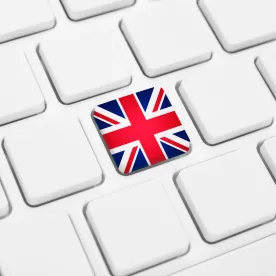“They think it’s all over”
The UK formally left the EU at 11pm GMT on Friday 31st January. In keeping with his election slogan “get Brexit done”, Prime Minister Boris Johnson has banned the word Brexit from the Government lexicon. Brexit Secretary Stephen Barclay resigned at 11pm that evening, and his Ministry was disbanded. Job done.
Well, not quite. The future relationship between the UK and the EU remains largely undefined, beyond some high level aspirations set out in the Political Declaration accompanying the Withdrawal Agreement. Those include a zero tariff zero quota free trade arrangement, preservation of the EU’s Single Market and its “four freedoms”, respect for the UK’s ability to pursue an independent trade policy, and some ambiguous (see below) wording about ensuring fair competition.
Negotiations to reach an agreement to fulfil those aspirations will take place through the coming year, during which the UK’s relationship with the EU remains essentially unchanged (though the UK has ceased to play any part in EU decision-taking). This “implementation period” (actually a negotiating period) can be extended by mutual agreement for up to two years. Any such extension must be decided by the end of June. A number of EU leaders and some commentators and business representatives on the UK side have said that extension will be necessary for any meaningful Free Trade Agreement to be concluded and ratified, and to allow business time to prepare. But the UK Government has been adamant that the “implementation period” will not be extended beyond 31st December 2020, and has indeed legislated to that effect.
Off to a bumpy start
The two sides have started to stake out their positions, both professing eternal friendship for the other. The EU’s objective appears to be to keep the UK as closely tied into the EU regulatory orbit as possible. EU leaders have spoken of the need for “dynamic alignment” – a mechanism to keep the UK automatically in synch with the evolution of EU regulation – and a continuing oversight role for the European Court of Justice, suggesting that both would be necessary for a Canada-style comprehensive FTA (which has neither). The UK has spoken of the desire for a Canada-style FTA, but has made clear that neither dynamic alignment nor any continuing role for the ECJ would be acceptable. The Political Declaration commits both parties to underpinning this FTA by robust commitments ensuring a level playing field for open and fair competition, and upholding the common high standards in the areas of state aid, competition, social and employment standards, environment, climate change, and relevant tax matters, with appropriate mechanisms to ensure effective implementation domestically, enforcement and dispute settlement.
Exactly what that commitment means is likely to be the key area of negotiating tension. UK Prime Minister Boris Johnson said in a speech on 3rd February that “there is no need for a free trade agreement to involve accepting EU rules on competition policy, subsidies, social protection, the environment, or anything similar any more than the EU should be obliged to accept UK rules. The UK will maintain the highest standards in these areas – better, in many respects, than those of the EU – without the compulsion of a treaty. And it is vital to say this now clearly because we have so often been told that we must choose between full access to the EU market, along with accepting its rules and courts on the Norway model, or a free trade agreement, which opens up markets and avoids the full panoply of EU regulation, like the Canada deal. Well folks, I hope you’ve got the message by now. We have made our choice: we want a comprehensive free trade agreement, similar to Canada’s.” The UK has insisted that it is willing to accept greater friction at the borders as a consequence of the lack of dynamic alignment.
In sharp contrast to Theresa May’s Government, divergence has become a key UK Brexit objective. On the evidence so far, this appears to be more about underscoring UK sovereignty and preserving the possibility of future divergence than some great bonfire of regulation on 1 January 2021 – indeed as Boris Johnson noted in the speech quoted above, UK regulation currently outstrips EU regulation in some key areas of environmental and labour law, and the UK inspired much EU competition law: the UK Government has said it intends to strengthen not weaken these areas. Future divergence is a more plausible objective given what some see as the EU’s excessively precautionary approach to the regulation of new technologies. The EU has however picked up the wording of the Political Declaration in its draft negotiating mandate, and sees this wording as supporting the position it has set out. A month before formal negotiations are due to start, both sides are already accusing the other of reneging on previous commitments…
In another significant change to the May era, the Johnson Government has intimated that it will revise the tariff schedules previously published as part of the “no deal” Brexit planning. The earlier tariff schedules exempted 88% of all imports into the UK from tariffs. The suggestion now is that UK tariffs will broadly mirror the tariffs that the EU sets in relation to countries with which it does not have a FTA.
A very different negotiating dynamic
It would be hard to overstate the extent to which the December election has changed the negotiating dynamic on the UK side. The sort of Parliamentary infighting which so dogged the three and a half years of withdrawal negotiations are a thing of the past. The Government can pretty much take Parliament’s support for its hardline approach for granted. In the Prime Minister’s mind, the next moment of approval or disapproval of his approach that matters is the next general election in 2024. There is no political cost for him now in taking a tough line.
And that is what the UK Government is doing. Amid the professions of eternal friendship, the Government has said that, if it cannot secure a Canada-style FTA on acceptable terms, it would be content with a looser Australia-style arrangement (WTO terms but with specific agreements for key sectors). This combined with the new tariff scheme would cause significant economic disruption to both sides. It would be tempting to conclude that someone in No.10 has read the Yannis Varoufakis script for negotiating with the EU: since you cannot negotiate with the EU, set out what you are going to do and stick to it until something better is offered. Some on the Conservative Right may think that there is nothing to lose here – either the UK gets a good Canada-style FTA without additional strings attached which would constrain future commercial policy, or a more basic way forward would force the adaptation of the UK economy they have long thought possible. Either way, we look set for a tough and bumpy negotiating season. And the Government plans at least to start negotiations with other key partners including the US, Japan, Australia and New Zealand.
It is worth recalling however that FTAs cannot be negotiated in isolation. A lot of the technicalities of FTA provisions are effectively interlinked – issues such as geographical indicators inevitably impact across FTAs given the need for business to operate to a coherent overall framework. So understanding the relationship between the FTAs is essential to ensuring that the provisions of the most relevant FTA to a specific business are as enabling as possible.
Sitting behind all this, however, is another key priority for Boris Johnson – to keep the Union of the UK together. There are two key challenges there: not causing the sort of disruption to the Scottish economy which might tip the balance in favour of independence, and keeping Northern Ireland within the UK market while respecting the Withdrawal Agreement provisions. Both point towards keeping the UK close to the EU in a range of sectors, but on a mutually agreed basis with some kind of adjudicating mechanism, rather than on a legally binding basis. In other words, de facto rather than de jure alignment.
Don’t underestimate fish
In the opening skirmishes, both have talked a lot about fish – reflecting more the political symbolism of coastal communities than the economic value to either of the fishing industry. In one of those nice Brexit ironies, EU vessels fish about six times as much in UK waters as UK vessels do in EU waters, but most fish caught by the UK fleet are sold into the EU, and most fish eaten in the UK come from the EU. So securing better fishing rights for the UK fleet without also preserving the UK’s access to the EU market would be something of a Pyrrhic victory. The Irish Taoiseach has suggested a “fish for financial services” trade-off – EU gets to keep access to UK fisheries in exchange for the City of London keeping access to EU financial markets: on the face of it, a great deal for the UK given the relative value of the City to the fishing industry (only around 0.1% of UK GDP). The UK has however already dismissed the idea. Fisherman have more political kudos than bankers, and there are plenty of fishing communities in Scotland. The EU insists the fishing question must be resolved in a first phase of the negotiations, and on the basis of the current species quota shares for each party – again something already rejected by the UK. Expect to hear a lot more about fish in the coming months….




 />i
/>i

